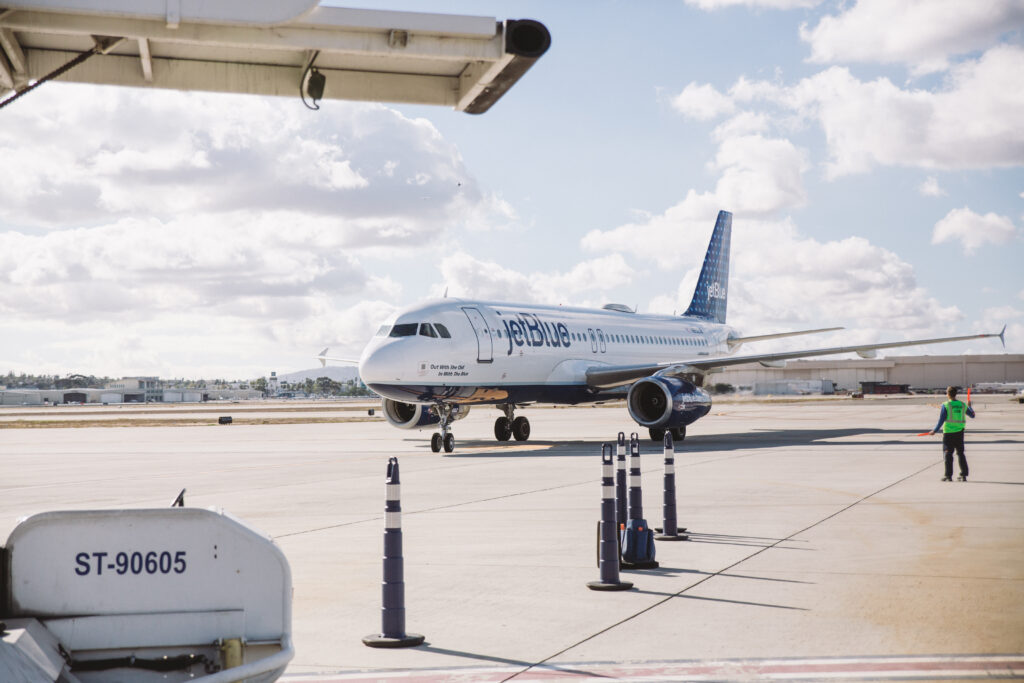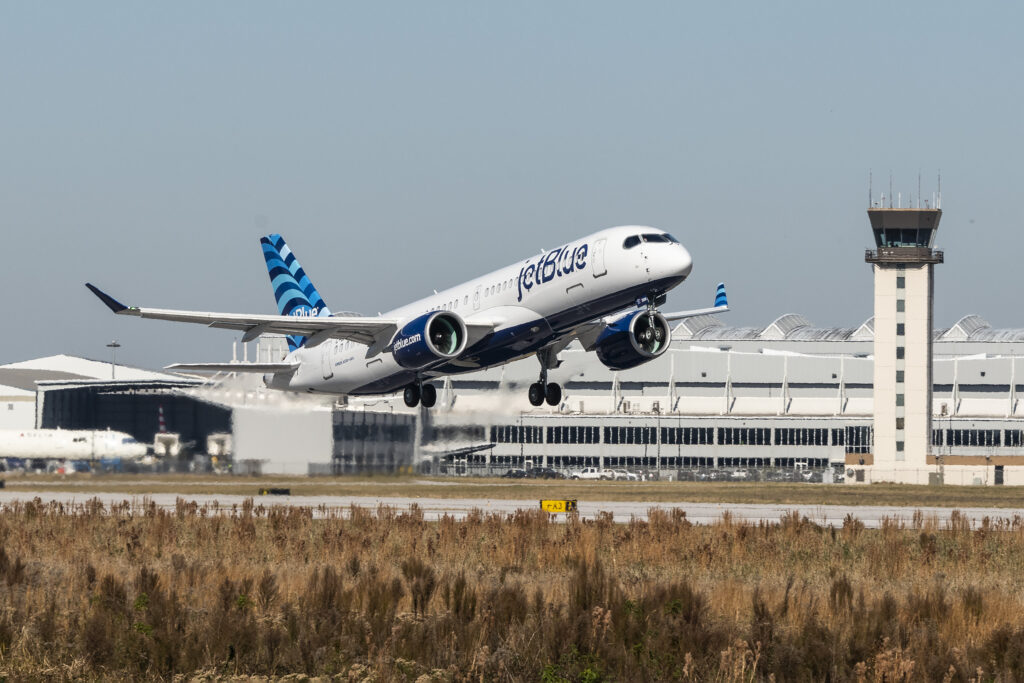JetBlue Lowers Profit Outlook Due to Northeast Alliance Termination
JetBlue's shares saw a decrease of approximately 8% as the airline revised its profit forecast for 2023, resulting in a negative impact on the stock value
by Fergus Cole
August 1, 2023

Photo: Courtesy of JetBlue
JetBlue has lowered its projected profits for 2023 and cautioned that it may incur losses this quarter due to the ending of its revenue-sharing Northeast Alliance (NEA) deal with American Airlines.
Yesterday, the airline based in New York released its financial report for the second quarter of 2023. The report shows a revenue of $2.6 billion for the period – a 6.7 percent increase from the same quarter in 2022. The net income for the period was reported as $138 million, which translates to $0.41 per share.
But despite revealing its highest quarterly profit since before the pandemic, it cited future operational challenges due to the impact of its NEA with American Airlines ending, along with a resurgence of demand for long-haul travel at the expense of short-haul leisure travel, as reasons for lowering its profit forecast for 2023.

Photo: Courtesy of JetBlue
JetBlue had previously forecast earnings of between 70 cents and $1 per share for the year but cut this down to between 5 and 40 cents on Tuesday. The updated financial forecast resulted in JetBlue’s shares falling by 8 percent in premarket trading.
“We are updating our full-year earnings outlook to reflect near-term headwinds related to the termination of the NEA, a challenging operating environment in the northeast, and a greater than expected shift of pent-up COVID demand to long-haul international markets which is pressuring demand for domestic travel during the peak summer travel period,” said Joanna Geraghty, Chief Operating Officer at JetBlue.
“While we remain on track to deliver a profitable year and record revenue performance, we are taking action, including redeploying capacity to mitigate these current challenges and improve margins.”
The NEA was launched in 2020, and the agreement allowed JetBlue and American Airlines to share passengers, routes, and revenue across the Northeastern U.S. market. However, a U.S. judge ordered the airlines to scrap their agreement in May following a decision that it harmed competition in the region, and the two carriers stopped selling tickets on each other’s flights last month.
JetBlue also referred to operational challenges in the Northeast U.S., which have been exacerbated recently by a shortage of air traffic control staff in the region. A rising number of flights and capacity across the U.S. following the resurgence of demand for air travel is also putting downward pressure on airfares.

Photo: Courtesy of JetBlue
However, JetBlue said that it is actively working to mitigate the effects of these challenges by investing in its fleet, among other cost-efficiency measures, and that it was confident it could ride them out in the long term.
“While challenges persist in the near term, we are pulling every lever at our disposal to continue to drive cost efficiencies, including better utilization, technology upgrades, fleet modernization and our structural cost program,” said Ursula Hurley, Chief Financial Officer at JetBlue.
“I remain confident in our ability to manage the near-term headwinds and focus on the factors we can control as we rebuild long-term margins and restore our historical earnings power.”



